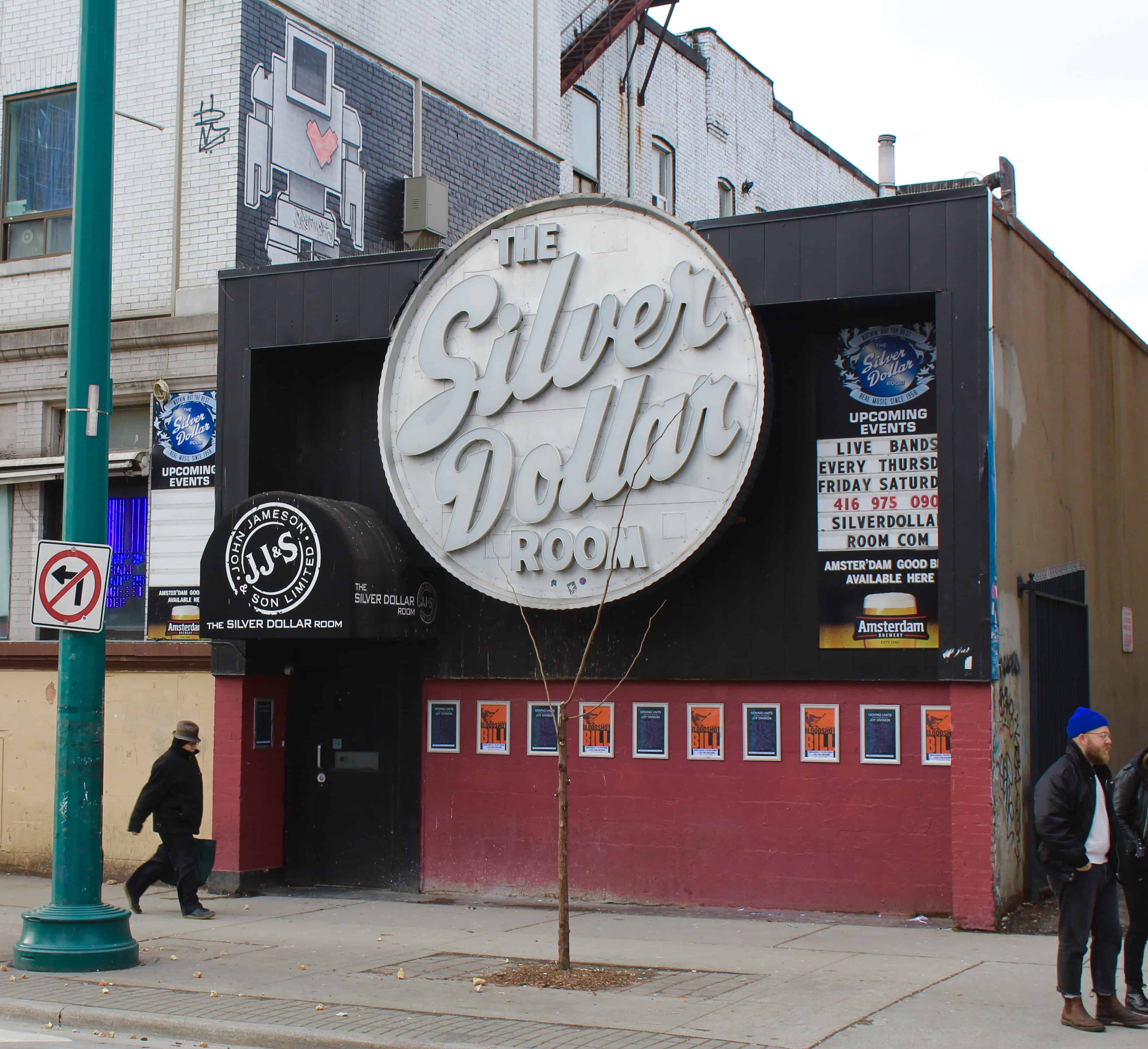Silver Dollar Room will be closing for construction on May 1. The construction is part of a planned private student residence that will precipitate the demolition of the adjacent Hotel Waverly and popular rave venue, the Comfort Zone.
U of T is not involved with the project; Wynn Group of Companies announced plans for a high-rise student residence on the site back in 2013.
The plans stirred up controversy over the proposed 22-storey height of the building which would have resulted in shadowing over the playground of the nearby Lord Lansdowne Public School. The plans also called for the demolition of the hotel, the subterranean club, and Silver Dollar Room.
The Toronto and East York Community Council rejected the application due to its height and a pending investigation into the heritage designation of Hotel Waverly and Silver Dollar Room.
“That was a proposal that the City opposed and we fought it because we felt it was too high, that it had a negative impact on the local school which was nearby and put shade over their playground but also that it closed and demolished the Silver Dollar,” said Toronto City Councillor Joe Cressy, who represents Ward 20 where the site is located.
Silver Dollar Room was designated under Part IV, Section 29 of the Ontario Heritage Act, however city staff determined that Hotel Waverly did not meet the criteria for designation.
“We have lots of heritage buildings designated throughout the city and that doesn’t mean they can’t be demolished but it does give added protection for the venues,” Cressy clarified.
“They appealed the City’s decision to the Ontario Municipal Board and so as part of a legal settlement, the City did the following: we reduced the height of their building from 22 to 15 storeys, which in turn took the shadows off the playground. And at the same time, we also secured — and this is because the City fought for it — protection of the Silver Dollar,” Cressy explained.
This protection provided to Silver Dollar Room included the preservation of the location and built form of the club, as well as the conservation of heritage attributes identified as part of its designation, namely “the location of the original entrance, the exterior ‘Silver Dollar Room’ sign and its location on the east elevation, the open volume of the interior performance space including the bar, the stage with raised areas and the terrazzo floor.”
Even with this protection, there are no assurances that the reopened Silver Dollar Room will still operate as a live music venue. “The City of Toronto cannot dictate the commercial use of a facility. But legally, we mandated that it had to be a commercial entertainment venue,” Cressy said, adding that even today, the current operator would be able to change the club’s use as long as it remained a commercial entertainment venue.
Cressy is optimistic that Silver Dollar Room will continue to operate as a live music venue. “Given the historic character, the strong recognition and support for the Silver Dollar and the fact that the current owner has first right of refusal to operate it, I am deeply hopeful and frankly will be surprised if it was used for something other than music,” he said.
Silver Dollar Room will reopen after construction of the private student residence but it is unclear when the construction will start. According to Cressy, Wynn Group of Companies has yet to submit a construction proposal to the City.
This news comes as El Mocambo, another historic live music venue just south of Silver Dollar Room, announced its reopening this summer following its temporary closure over financial difficulties.
Paul Wynn, President of the Wynn Group of Companies, was unavailable for comment.


